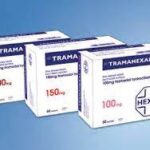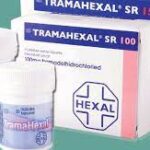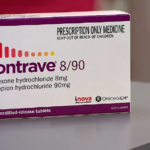Can I Take Tramahexal and Alcohol

This is a question doctors are asked a lot. And it shouldn’t be a surprising one: 55% of Americans regularly take prescription medications and 30% of Americans have at least 1 alcoholic drink every day. Since literally hundreds of medications can lead to alcohol (also called ethanol) interactions, it is important to review your medicines with your pharmacist or other health care provider to check for clinically significant drug-alcohol reactions.
Even though some research suggests that moderate alcohol consumption is heart healthy, certain medications and alcohol have the capacity to interfere with your successful treatment.
Research has shown that the prevalence of alcohol and medication interactions is widespread.
• The National Institute of Health (NIH) conducted a study of over 26,000 adults from the National Health and Nutrition Examination Study (NHANES) to determine their alcohol and prescription drug use.
• They found that over 70% of U.S. adults regularly drink alcohol, and roughly 42% of those who drink also use medications that can interact with alcohol.
• Utilizing a large database of over 1,300 medications, they found that 45% of the medications had the potential to interact with alcohol.
Be sure to check on your prescription drugs, as well as your over-the-counter (OTC) medicines, herbals, and dietary supplements like vitamins and minerals. When combined with alcohol, some OTC medicines can have serious drug interactions too. However, do not stop using any medications without first talking to your doctor.
What is Tramahexal?
Tramahexal is a brand of tramadol, a prescription drug that works by binding to opioid receptors in the brain, which relieves pain. Tramahexal belongs to a class of drugs called opioid agonists. A class of drugs is a group of medications that work in a similar way. These drugs are often used to treat similar conditions. Although it is effective at treating mild to moderate acute or chronic pain, tramadol is one of the least potent painkillers available.
However, Tramahexal can still be addictive, especially when taken for a long period of time or when taken in larger doses than prescribed. Tramahexal is a controlled substance. This means it can only be used with a doctor’s close supervision.
Can I mix Tramahexal and alcohol?
No, combining Tramahexal and alcohol can be dangerous when used in combination because both substances depress the central nervous system. Combining them could intensify the sedative and respiratory depressing effects of both, which could lead to unconsciousness, coma, respiratory arrest, overdose or death.
When opioids are combined with alcohol and other central nervous system depressants, it can lead to life-threatening respiratory depression causing severe oxygen deprivation and long-term brain damage. This can quickly result in coma or become fatal.
Taking too much Tramahexal can also produce an overdose when combined with other substances such as alcohol, and requires immediate medical attention. Warning signs of a potentially fatal Tramahexal overdose include:
- Increased heart rate.
- Cold, sweaty skin.
- Excessive sleepiness.
- Loss of muscle control.
- Pinpoint pupils.
- Trouble breathing.
Dependence & Addiction
Addiction develops as a person loses control over many, if not all aspects of their lives despite knowing the negative consequences of their drug or alcohol use. According to the Diagnostic and Statistical Manual of Mental Disorders (DSM-5), a person must meet at least 2 of the following criteria within a 12-month period to receive a diagnosis of an opioid and/or alcohol use disorder (AUD):
- Cravings or strong urges to use.
- Developing a tolerance where larger amounts, or more frequent doses, are needed to achieve prior effects.
- Experiencing withdrawal symptoms when trying to quit.
- An inability to quit or cut back on use.
- Drinking alcohol or taking higher amounts of opioids more frequently than originally intended.
- Spending a significant amount of time obtaining, using, and recovering from the effect of opioids or alcohol.
- Having a psychological or physical problem that is likely the result of use but continuing to use regardless.
- Continuing use despite recurring or persistent interpersonal or social problems due to use.
- Using alcohol or drugs in situations where it is physically dangerous to do so (e.g., driving).
- No longer fulfilling obligations at work, home, or school due to use.
- Stopping recreational, social, or work activities because of use.
Is it Safe to Quit Tramahexal & Alcohol Cold Turkey?
It can be dangerous to abruptly stop using opioids and alcohol without the supervision of a medical professional. Withdrawal from opioids is associated with vomiting and diarrhea, which can cause dehydration and electrolyte disturbances. Though opioid withdrawal symptoms may be severely unpleasant on their own, people who are also alcohol-dependent may experience a risky alcohol withdrawal syndrome when trying to quit cold turkey.
When detoxing from alcohol, withdrawal symptoms may include anxiety, agitation, increased heart rate and blood pressure, vomiting, high body temperatures, hallucinations, and seizures. A combined alcohol and opioid dependence can increase the likelihood of an additionally severe or complicated withdrawal.
You can also find useful information on: How Long Does Tramahexal Take To Work?





